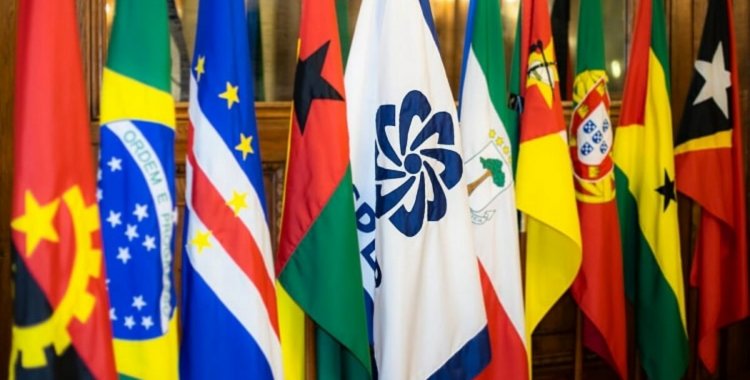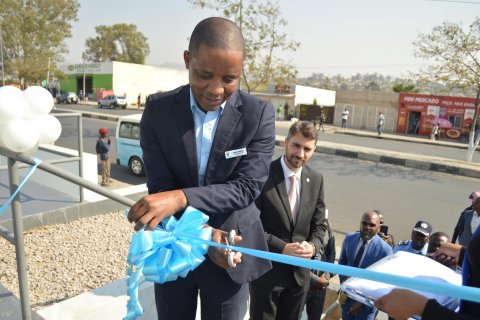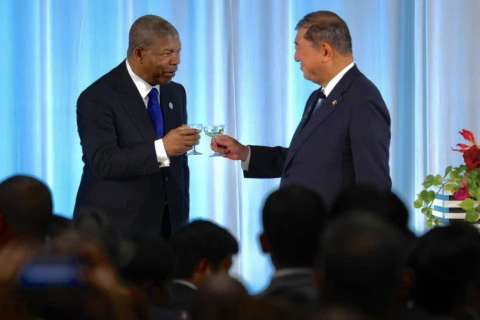"I hope it is a guarantee that in the next two years we will be able to mobilize the Member States, the respective national commissions, for a stronger and more effective participation in the IILP", asked the Portuguese, after a meeting in the city of Praia with the President of the National Assembly of Cape Verde, Austelino Correia.
For the new director, sworn in in January, succeeding the Guinean Incanha Intumbo, this will only be possible if the IILP is able to present to the Community of Portuguese Speaking Countries (CPLP) the challenges and projects that involve and mobilize them.
"Just as I hope that the national committees of the countries and that, within these countries, entities such as parliaments can become involved in a common agenda with the IILP to promote the common interest in the use of the Portuguese language, I also hope that we, at the IILP, let us be able, in this mandate, to find ideas, projects that mobilize countries and introduce value in the great issues that the Portuguese language has in its international challenge", he maintained.
Noting that the "competition" in terms of languages is currently great, João Laurentino Neves also stressed that the Portuguese language is internationally recognized as strategic, resulting from the power that each of the Portuguese-speaking countries has from a regional point of view, but also internationally.
"The CPLP is a very strong organization, unique, there is none like it and, therefore, the Portuguese language, as a language of international communication, has a way to go, we also have work to do so that it can have an increasingly active presence in science, on the internet, in international communication, in learning and introduction to foreign universities, on trade routes, on diplomacy routes", he pointed out.
Previous IILP directors have complained about the lack of sufficient resources to put the activities into practice, with Laurentino Neves insisting on the need for the institution to come up with ideas, projects and survey needs. "But here we have to be reasonable", he asked, saying that the ideas must be "realistic".
"We have to start with projects that we know that, having their degree of challenge, higher in some cases, less in others, are realistic and feasible proposals, which is so that we can reach the end and have products. It is important that we do not discuss projects that then come to an end and you don't know what to produce. It's important that we have results to present", said the director, hoping to find resources within the countries of the community, but also with partners.
The official said that he already has availability from Portugal and other countries to reinforce financial support to the IILP, an institution based in the city of Praia, where, in addition to the diplomatic representations, he has already met with the Minister of Foreign Affairs, Rui Figueiredo Soares, to offer greetings and show the work since the beginning of the functions.
For the next two years, he promises to define an agenda and a strategic plan for the IILP, with measures considered essential to be put into practice, as well as his own projects, but also arising from partnerships.
In the case of the National Assembly of Cape Verde, considered an important player in the promotion and dissemination of the Portuguese language, he pointed out training and technical-scientific terminologies as areas that could work together.
João Laurentino Neves was sworn in on January 9, at the CPLP headquarters in Lisbon, as the new director of the IILP, an organization supervised by the Portuguese-speaking organization and which has a rotating executive board, with each of the nine member states being responsible for nominating them for two years.
With a degree in Modern Languages and Literature, Neves was also director of IPOR - Instituto Português do Oriente and has already been linked to the IILP, namely between 2003 and 2008, when he was part of the institute's scientific council assembly.
Angola, Brazil, Cape Verde, Guinea-Bissau, Equatorial Guinea, Mozambique, Portugal, São Tomé and Príncipe and Timor-Leste are the nine Member States of the CPLP.







